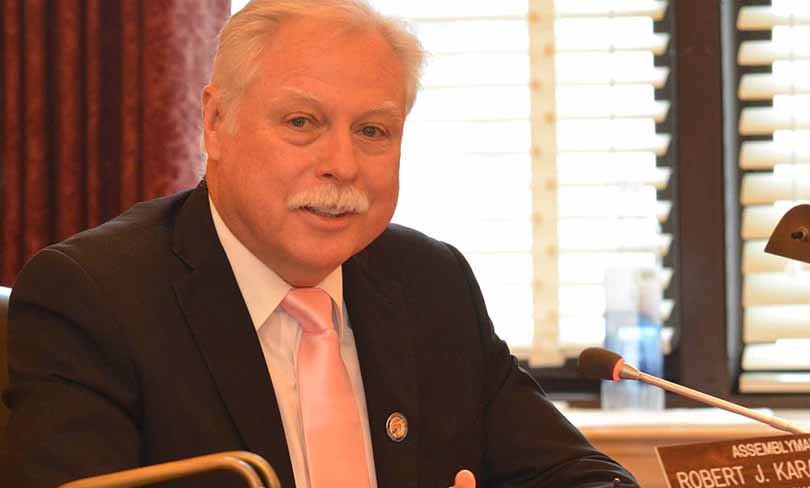(TRENTON) – Legislation sponsored by Assembly Democrats Ralph Caputo, Mila Jasey, Robert Karabinchak, Raj Mukherji and Nicholas Chiaravalloti to help more families experiencing economic hardship qualify for state tuition aid grants was recently signed into law.
Specifically, the new law (formerly bill A-4763) excludes amount of certain early withdrawals from qualified retirement plans in determination by Higher Education Student Assistance Authority of applicant’s eligibility for and amount of state tuition aid grant.
Sponsors said there have been instances in New Jersey where families were “penalized” twice when they withdrew retirement money early as a means to permit their children to stay in school.
“Many parents resort to withdrawing money from their retirement fund to help with college costs,” said Caputo (D-Essex). “This shows economic hardship in most cases and should not be held against families who would otherwise qualify for a state tuition grant.”
“Student loans are a significant burden to many New Jersey students and their families,” said Jasey (D-Essex, Morris). “And parents who have to make a withdrawal from their retirement funds in order to make ends meet should still be given every opportunity to seek financial assistance that will help them pay their college tuition.”
“The rising cost of college education has made pursuing higher education difficult for many students and their families,” said Karabinchak (D-Middlesex). “If there’s any way that we can make it easier for students to attend college without the excessive burden of student loans, we should support.”
“We want every New Jersey student to have the opportunity to attend college and follow their dreams,” said Mukherji (D-Hudson). “We must realize that economic hardship comes in many forms and having to make an early withdrawal from one’s 401k should not be a determining factor in ineligibility for a state tuition aid grant.”
“Receiving a tuition aid grant has helped many students pursue their dreams of a college education,” said Chiaravalloti (D-Hudson). “This new law will help even more families qualify for the aid.”
The new law requires the Higher Education Student Assistance Authority (HESSAA) to solicit from an applicant for financial assistance, information on whether he received an early withdrawal from a qualified retirement plan under the Internal Revenue Code, such as an individual retirement account or a 401(k) plan, and the amount of the early withdrawal.
If the applicant took an early withdrawal, the amount of the early withdrawal, less the amount of any federal income tax credit claimed by the applicant for a tax penalty assessed on the early withdrawal, will be deducted from the adjusted gross income utilized by HESAA to determine the applicant’s eligibility for, and the amount of, a state tuition aid grant. This exclusion will only be permitted if the applicant provides documentation that the early withdrawal was taken due to an economic hardship, as determined by HESAA.


